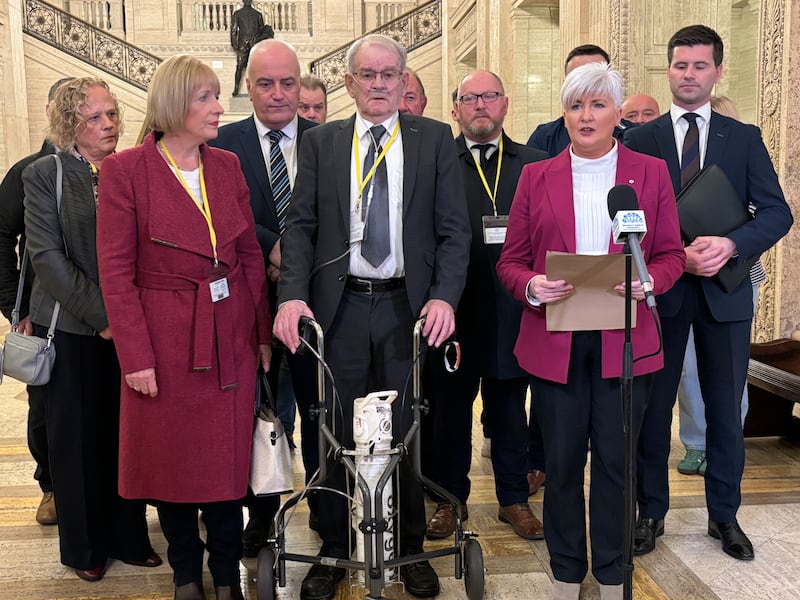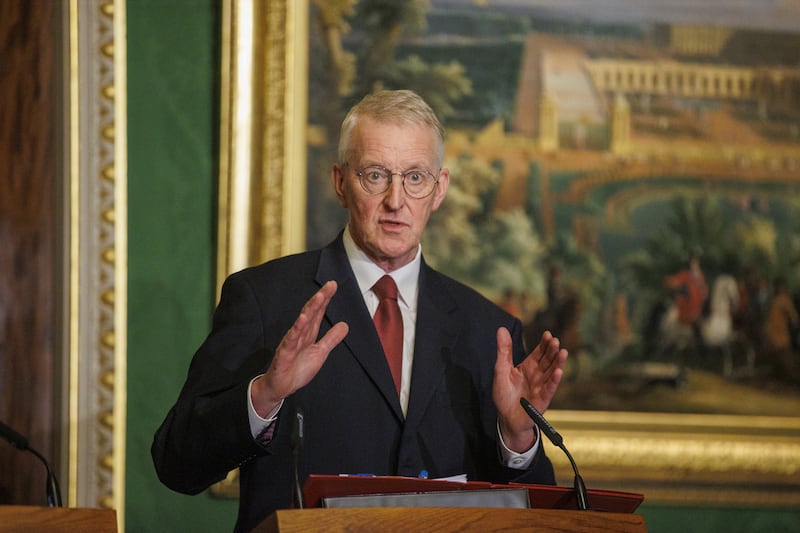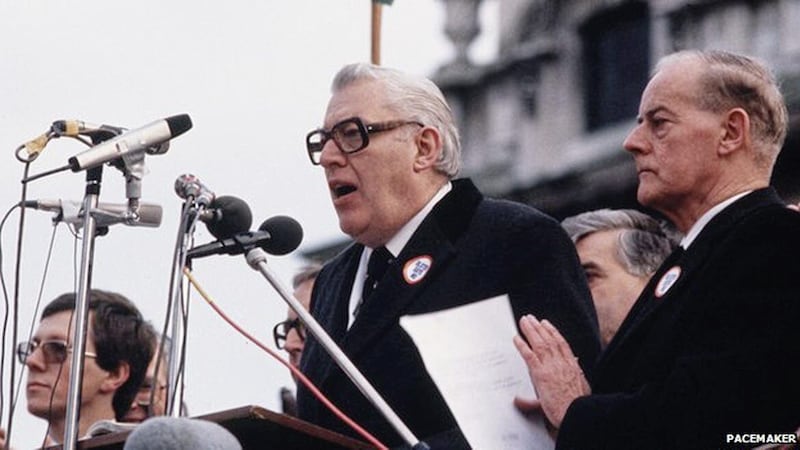“There are currently 17 names on headstones along a three-mile stretch of road that runs past our house. They are a stark reminder to those living in and beyond south Armagh, and in particular the blinkered civil servants in Whitehall, that although the Troubles in Northern Ireland are over, the battle for truth and justice, for so many families, still goes on.”
This is the last paragraph in Eugene Reavey’s stirring and disturbing book ‘The Killing of the Reavey Brothers – British Murder and Cover-Up in Northern Ireland’.
It’s a harrowing read and one which serves to remind everyone who lived through the Troubles that the British Government wasn’t just complicit in murder but actually orchestrated it too.
The notion of a benign UK military intervention in the north is a myth.
Despite the British establishment’s protracted attempts to portray a false narrative of soldiers as some kind of well-intentioned modern-day crusaders tackling marauding, unruly infidel natives, thanks to Eugene Reavey and Ken Murray the truth has spoken out from beyond the graves where those 17 headstones lie.
The army didn’t simply marshal between two warring factions – they perpetuated the conflict by stoking up sectarianism and colluding with all hues of paramilitaries in covert murderous operations.
When not protecting their agents, they permitted a rogue culture, turning the north into killing fields.
None of what has been revealed by several inquiries into RUC and British Army collusion takes away from the awful, barbarous, and unwarranted atrocities of the IRA, UVF, UDA, or INLA.
There wasn’t a single life worth taking in a fruitless struggle in which the main protagonists ended up settling for a political deal weaker than what was on offer at Sunningdale in 1973.
By 1998, the north had endured over 3,000 deaths and more than 40,000 injured. Hardly a roll of honour for any of the belligerents.
Eugene Reavey is an incredible individual. As is his south Armagh neighbour, Alan Black, the sole survivor of the Kingsmills slaughter.
Both men ooze honesty, integrity, and personal resolve. Their stories need to be heard – again and again. Their quest for justice and truth won’t ever die with them.
 Alan Black, survivor of the Kingsmills massacre, pictured centre
Alan Black, survivor of the Kingsmills massacre, pictured centre
Eugene and Alan deserve justice in order to have peace of mind, and the British Government, instead of being obstructionist, should see that justice delivered on.
I had the privilege of bringing Eugene Reavey, Alan Black, and Michael O’Hare (brother of Majella, who was murdered by a British paratrooper when she was just 12 years old) to meet with Hilary Benn, the then Shadow Secretary of State, in a coffee shop in Newry.
He was clearly moved by their stories — all made victims by different perpetrators.
Despite reading about these atrocities, as I listened to their own quiet voices I struggled to hold back tears.
Now Benn is in the hot seat and trying to resolve the Tory legacy debacle once and for all. That meeting still resonates with him.
 Secretary of State Hilary Benn (Liam McBurney/PA)
Secretary of State Hilary Benn (Liam McBurney/PA)
As if being a victim wasn’t enough for Eugene Reavey and his long-suffering mother, Sarah, he was then falsely vilified by the odious misuse of parliamentary privilege by that arch bigot and demagogue Ian Paisley.
I happened to be in Westminster then to meet with my former boss, Seamus Mallon MP. Mallon was incandescent with rage at Paisley and figuratively gave him both barrels outside the chamber.
Paisley never apologised to the Reavey family despite the Historical Inquires Team disproving his false claims. This wasn’t only shameful and shameless behaviour but also dangerously reckless, putting the Reavey family at risk again.
John-Martin (24), Brian (22) and Anthony Reavey (17) will never be forgotten, and largely due to Eugene never giving up or caving in.
So to Eugene the final words: “I can now look out the window and watch my grandchildren happily playing GAA games knowing they are growing up in a safer society than the one we found ourselves plunged into back in the early 1970s.”
If you have an opinion on the issues raised in this article and would like to submit a Letter to the Editor to be considered for publication, please click hereLetters to the Editor are invited on any subject. They should be authenticated with a full name, address and a daytime telephone number. Pen names are not allowed.

